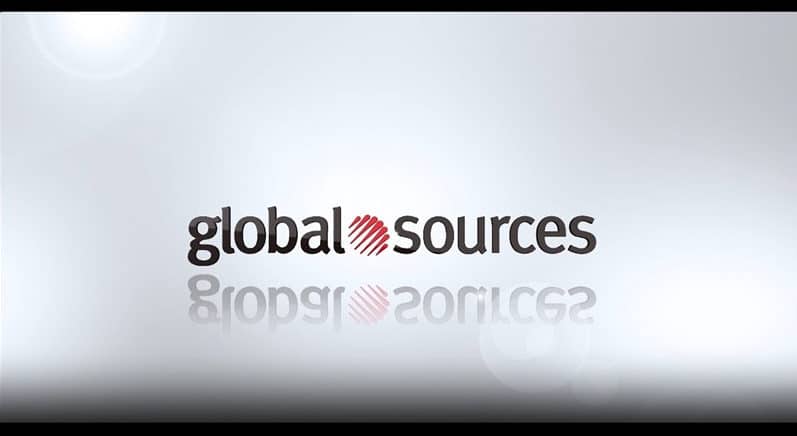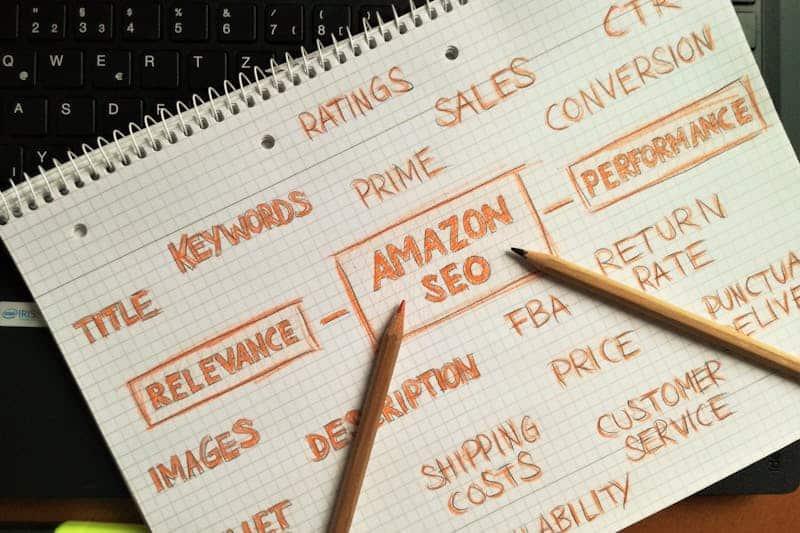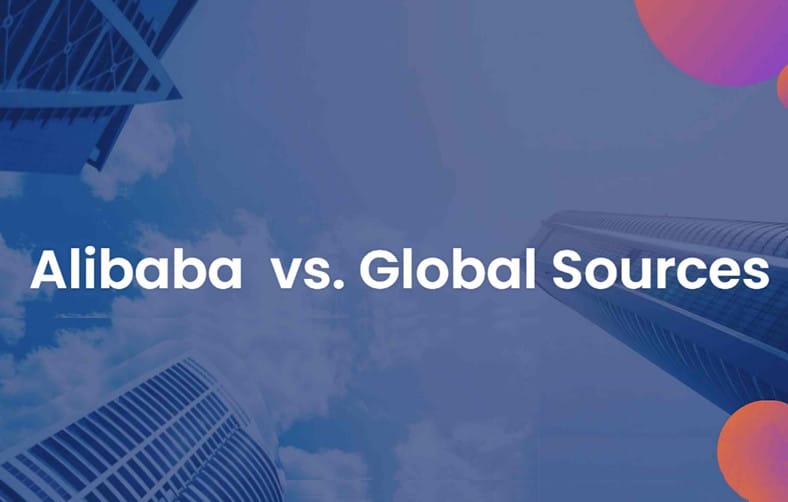As a small business owner, you wear many hats. You’re the CEO, the marketer, the accountant, and often, the sourcing manager. Finding reliable suppliers and navigating the complex world of international trade can feel like an uphill battle. But it doesn’t have to be.
Two platforms, Alibaba and Global Sources, have emerged as go-to destinations for businesses seeking products from overseas. But which one is the smarter choice for your small business in 2024?
Let’s dive into the unique challenges small businesses face and how each platform addresses them, so you can make an informed decision.
Alibaba vs. Global Sources : comparison video
If you’re a small business owner venturing into the world of global sourcing, choosing the right platform can be a daunting task. Alibaba and Global Sources are two popular contenders, each with its own strengths and weaknesses. But which one is the right fit for your unique needs? In this video, we’ll break down the key differences between these two platforms, exploring their pros and cons in detail to help you make an informed decision.
We’ll break down their unique strengths and weaknesses, comparing factors like product range, quality assurance, pricing, and user experience. But that’s not all – we’ll also unveil alternative sourcing methods that might be even better suited for your business needs.
Small Business, Big Challenges
Small businesses often operate with limited budgets and smaller order volumes. They need suppliers who are flexible and willing to work with their constraints. Additionally, concerns about quality control, potential scams, and the sheer overwhelming number of options can be daunting for those new to the sourcing game.
Choosing the right platform can make all the difference. It can mean the difference between finding a reliable partner who helps your business thrive or getting lost in a sea of subpar products and unreliable suppliers.
Alibaba for Small Businesses
Alibaba, the world’s largest online marketplace, boasts a massive supplier base with an endless variety of products.

For small businesses, this means potentially finding suppliers willing to negotiate minimum order quantities (MOQs) to meet their needs. Alibaba’s Trade Assurance program offers some protection against fraud and quality issues, providing a safety net for cautious buyers.
However, Alibaba’s vastness can be overwhelming. Sorting through countless suppliers to find those who are reputable and trustworthy can be a time-consuming process. The risk of scams and quality control issues is higher on Alibaba than on more curated platforms. Pricing can also be confusing, with significant variations between suppliers and potential hidden fees.
Tips for Navigating Alibaba as a SME
- Thoroughly vet suppliers: Check their transaction history, ratings, and certifications. Look for suppliers who have been verified by Alibaba or third-party inspection companies.
- Don’t hesitate to negotiate MOQs: Many suppliers are willing to be flexible, especially if you establish a good relationship.
- Start small: Place a small test order before committing to a larger purchase to assess product quality and supplier reliability.
- Utilize Trade Assurance: This program offers some protection against fraud and non-delivery, but it’s not foolproof.
Global Sources: A More Curated Approach
Global Sources takes a more curated approach to supplier selection.

Their Verified Supplier program ensures that listed suppliers meet specific quality and compliance standards. This can save small businesses time and effort in vetting potential partners. The platform’s interface is generally more user-friendly and less overwhelming than Alibaba’s, making it easier to navigate and find suitable suppliers.
However, Global Sources’ smaller supplier pool means less variety compared to Alibaba. You may not find the same range of niche or highly specialized products. Additionally, some suppliers on Global Sources may have higher MOQs or slightly higher prices than those found on Alibaba.
Tips for Using Global Sources as a SME
- Look for Verified Suppliers: This badge indicates that the supplier has undergone a third-party audit and meets certain standards.
- Attend trade shows: Global Sources organizes both online and in-person trade shows where you can connect directly with suppliers.
- Build relationships: Establishing rapport with suppliers can lead to better prices, more flexible terms, and a smoother sourcing experience.
Head-to-Head: Alibaba vs. Global Sources
Feature
Alibaba
Global Sources
Supplier Verification
Trade Assurance program, but extensive vetting required by the buyer
Verified Supplier program with stricter standards for quality and compliance
Average MOQs
Vary widely, but can be negotiated
Generally higher than Alibaba, but some suppliers offer smaller MOQs
Pricing and Fees
Often lower, but can be opaque and vary between suppliers
Can be higher than Alibaba, but more transparent
Product Variety
Vast selection, including niche and highly specialized products
More limited selection, but focused on quality and compliance
Ease of Use
Overwhelming interface, can be difficult to navigate for beginners
User-friendly interface, easier to find relevant suppliers
Additional Services
Variety of value-added services, but quality can vary
Trade shows, sourcing support, product testing, and inspection services
Choosing the Right Platform for Your Business
So, which platform is right for your small business?

The answer depends on your specific needs and priorities.
- Budget: If you’re on a tight budget, Alibaba might be a better option due to its potential for lower prices. However, be prepared to invest time in vetting suppliers and negotiating.
- Product Type: If you’re looking for a specific niche or highly specialized product, Alibaba’s vast selection might be more advantageous. For more standardized products with a focus on quality, Global Sources could be a better fit.
- Order Volume: If you have smaller order volumes, Global Sources might be a more suitable option, as some suppliers offer lower MOQs. However, you might find more flexibility on Alibaba if you’re willing to negotiate.
- Risk Tolerance: If you’re comfortable with a higher risk of scams and quality issues, Alibaba might be a viable option. However, if you prioritize security and reliability, Global Sources’ stricter supplier verification process could be more appealing.
- Experience Level: If you’re new to importing, Global Sources’ user-friendly interface and curated supplier base might be easier to navigate. Experienced importers may find Alibaba’s vast selection and negotiation opportunities more appealing.
Made in Vietnam Products for Online Sourcing
As businesses increasingly adopt a “China Plus One” strategy to diversify their supply chains and mitigate risks, Vietnam has emerged as a compelling alternative for sourcing a wide range of products.
Renowned for its skilled labor force, competitive costs, and favorable trade agreements, Vietnam offers a wealth of opportunities for businesses seeking high-quality and cost-effective goods.
Both Alibaba and Global Sources feature a plethora of Made in Vietnam products across various categories. Some popular options include:
- Textiles and Garments: Vietnam boasts a thriving textile and garment industry, producing everything from apparel and footwear to home textiles and accessories.
- Furniture: Vietnamese furniture manufacturers are known for their craftsmanship and ability to create both traditional and contemporary designs. With a focus on sustainable materials like bamboo and rattan, Vietnam offers eco-conscious businesses a wide range of furniture options.
- Electronics: Vietnam’s electronics industry is rapidly growing, with a focus on components, consumer electronics, and mobile accessories.
- Footwear: Vietnam has become a major player in the global footwear market, producing a diverse range of shoes for various purposes, including sports, fashion, and work.
- Handicrafts and Home Decor: Vietnam’s heritage is well known for weaving, handicrafts and home décor items. From ceramics and lacquerware to water hyacinth baskets and bamboo products, Vietnam offers a unique selection of artisanal goods.
- Agricultural Products: Vietnam is a major exporter of agricultural products like coffee, cashew nuts, pepper, and seafood.
By exploring Made in Vietnam offerings on Alibaba and Global Sources such as bamboo straws, eco-friendly tote bags, along with rattan baskets and ceramic vases, businesses can tap into a diverse range of products while diversifying their supply chains and reducing their reliance on a single source.
The Bottom Line
Both Alibaba and Global Sources offer valuable resources for small businesses seeking to source products from overseas.

Ultimately, the “smarter” choice depends on your individual needs and priorities. Weigh the pros and cons of each platform, consider your budget, product type, order volume, and risk tolerance, and choose the platform that best aligns with your business goals.
Remember, thorough research and due diligence are crucial when sourcing products from either platform. By investing time in vetting suppliers, negotiating terms, and understanding the risks involved, you can increase your chances of finding reliable partners and building a successful import business.

